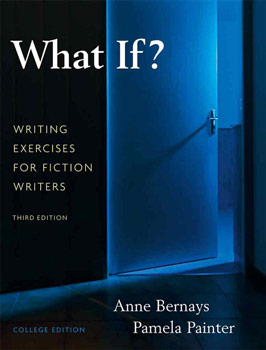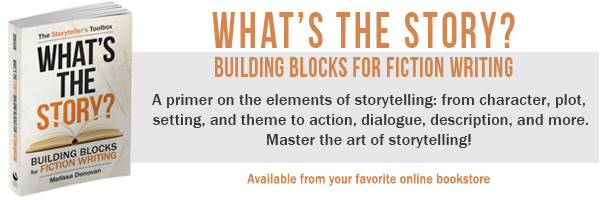This post contains affiliate links that earn commissions from qualifying purchases.
Good fiction includes many different elements: believable characters, realistic dialogue, and a compelling plot. Every decent story has a beginning, middle, and end. Intriguing tales are built around conflict and are rich with themes and symbols. And those are just the basics.
It can be pretty overwhelming.
Fiction writing is hard work. It requires a complex and diverse set of skills. Stringing words together into sentences only scratches the surface of what goes into good fiction writing. Fiction that is truly worthwhile is layered with meaning. It’s made up of an infinite number of tiny parts. Most importantly, it has a sense of truth and realism that the real world often lacks.
Mark Twain said, “Truth is stranger than fiction, but it is because fiction is obliged to stick to possibilities; truth isn’t.”
Ralph Waldo Emerson said, “Fiction reveals truth that reality obscures.”
And Stephen King said, “Fiction is the truth inside the lie.”
In other words, fiction, at its best, feels truer than reality. Great writers make it look easy, but writing that kind of fiction, the kind that’s worth reading, is nothing short of magic.
Writing Exercises for Study, Practice, and Inspiration
It takes years to master the craft of fiction writing, to get so good that you make it look effortless.
Other than reading plenty of fiction, one of the best ways to master this complicated craft is through writing exercises. I have found that the best fiction writing exercises offer three benefits:
1. Tools and Techniques: it’s not enough to be given a writing assignment that does little more than get you to scrawl words on the page. A good writing exercise imparts useful tools and techniques that, once learned, will stay with you forever.
2. Practice: writing exercises force you to do more than study the craft; they also give you practice and experience. They work your writing muscles, which is why they’re called exercises.
3. Inspiration: inspiration often comes when we suddenly see the world in a new way. Good writing exercises point you in a new direction and push you toward fresh ideas from broad story concepts to minute details that enrich your narrative.
The book What If? Writing Exercises for Fiction Writers provides fiction writers with all these benefits and a whole lot more.
What If? Writing Exercises for Fiction Writers
I picked up my copy of What If? as required reading for a fiction writing class that I took in college. Ironically, we didn’t use the book much in class, but I’ve kept it close and often turned to it for insight and inspiration. Since it’s a college textbook, it’s a bit pricey, but it’s worth every penny. Here’s what you get:
- 115 fiction writing exercises: Everything you could want, including tools and techniques that strengthen your writing, practice for gaining experience, and inspiration for new projects as well as projects you’re already working on.
- 24 short stories: From the likes of Jamaica Kincaid, Margaret Atwood, Raymond Carver, Alice Munro, and Tobias Wolff, these stories were written by some of the greatest writers in literature, and they serve as excellent examples for demonstrating concepts presented throughout the text.
- Selected bibliography: this book could keep you busy for years, but if you want more, the selected bibliography will point you in the right direction. It’s packed with fantastic writing resources.
- Wisdom: many of the exercises include insightful quotes or recommendations for further reading.
- Examples: Almost all the exercises include student examples, which demonstrate how the exercise can be successfully executed.
When I first got the book, my favorite thing about it was that it got me thinking about fiction writing from new angles. Later, I found that the exercises were good practice for developing my writing and storytelling skills. Even now, when I read through a few exercises, I’m inspired, not just with ideas, but I’m actually inspired to write. I can’t wait to get to work.
Sample it for Yourself
Here are summaries of some of my favorite exercises from What If?:
Image Notebook
Keep an image notebook and write down one image every single day by asking yourself “What’s the most striking thing I heard, saw, smelled, touched, or tasted today?”
Put Your Characters to Work
Write a story in which your character’s personal problems are played out at his or her workplace. This exercise is a good reminder that too many stories ignore the mundane in order to focus on the extraordinary.
Go Ahead, Yawn
Give your character a physical problem to cope with. The example given is a nun who has a piece of dental floss stuck between her teeth all day. It’s not the central conflict but constant reminders of her discomfort keep readers engaged at a visceral level.
What If? Writing Exercises for Fiction Writers
 What If? is one of my favorite resources for fiction writing, and I can’t recommend it highly enough. If you want to expand your storytelling skills and get some writing practice while gleaning loads of inspiration, then pick up a copy for yourself.
What If? is one of my favorite resources for fiction writing, and I can’t recommend it highly enough. If you want to expand your storytelling skills and get some writing practice while gleaning loads of inspiration, then pick up a copy for yourself.
What are some of your favorite fiction writing resources? How have writing exercises shaped your fiction-writing skills? Share your thoughts and experiences by leaving a comment, and keep writing!





I have an earlier print of this book, and I love it–wouldn’t part with it for the world. It’s gotten me past writer’s block more times than I can count. Another of my favorites, I believe now out of print, is “Fast Fiction: Creating Fiction in Five Minutes” by Roberta Allen
Thanks for the recommendation!